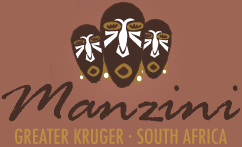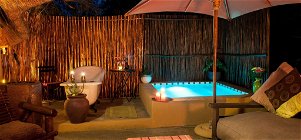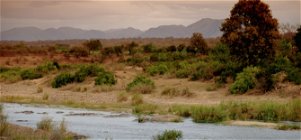-

 Health Tips
Health Tips
Health Tips for Travellers
Please note that this page is a guide line only and all travellers are strongly recommended to visit either their private doctor or a health clinic, experienced in travel, four to eight weeks before departure to obtain appropriate and comprehensive medical advice upon visiting any new destination.
It would be unfortunate if anything took away from your health, fitness or the pleasure of your holiday memories. Unfortunately health risks are everywhere we travel and if you are visiting South Africa, Mpumalanga you should know that there are a few health matters to be aware of.
South Africa has a beautiful climate and our levels of hygiene, health care, and water treatment make it a pretty safe and extremely enjoyable destination. We have listed below a few health tips that you may add to your knowledge base of traveling.
General Health Tips
- Bring adequate supplies of all medications in their original containers, clearly labelled.
- Carry a signed, dated letter from your doctor, describing all medical conditions and listing all medications, including generic names.
- Pack all medications in hand luggage. Carry a duplicate supply in your packed luggage.
- If you wear glasses or contacts, bring an extra pair.
- If you have significant allergies or chronic medical problems, wear a medical alert bracelet.
The Sun
We are exceptionally privileged with our warm and sunny climate in all of the Mpumalanga resorts as sunny skies make for the best South African holidays. This however creates a risk when caution and protection is not taken with the high UVA and UVB penetration over South Africa with its daily sun. Not to worry though, as with a bit of caution and protection the risk can be managed and will not be a show stopper to any of your adventures.
Just remember to protect yourself against the harsh sun by making use of:
- Good Sunscreen
- Wide-brimmed Hat
- Sunglasses
(As minimum essentials).
Especially in summer (Oct-March) between the times 10:00 am and 4:00 pm. You should make use of the highest possible UV protection as it is the UVA rays as well as the risk of burning your skin that you are trying to block out. Ideally aim for an SPF of 30 or more to offer the best protection.
Water Precautions
We recommend that you do not drink tap water and rather make use of bottled water as it is readily available in most places and definitely in Marloth Park.
Bilharzia
Bilharzia can be a problem in some of the east-flowing rivers, but it is easily detected and treated if it is caught early. Perhaps it would be a good idea to have a routine test a month or two after you get home, just to reassure yourself.
Bilharzia Prevention:
- Do not swim in fresh water when visiting areas where bilharzia is endemic.
- Make sure that drinking water is safe by filtering or boiling it for 1 minute. Iodine treatment alone cannot guarantee safe and parasite-free drinking water.
- Heat bath water for at least five minutes to 65 degrees C. Water that has been stored in a tank for at least 48 hours should be safe to bath in.
- Vigorous towel drying to prevent the parasite from entering the skin is not very reliable and can be used with limited success only after very brief exposure to contaminated water.
Malaria
Malaria is a risk when visiting malaria areas like the Lowveld in Mpumalanga. For prevention of malaria it is advised to use effective insect repellents. Malaria prophylaxis is recommended for all travellers to Mpumalanga Lowveld as malaria in South Africa occurs within the Lowveld areas of Mpumalanga and is considered under the malaria areas.
Causes of malaria - Malaria is spread by the Anopheles mosquito (malaria mosquito). The best action to take for malaria prevention is to not get bitten or alternatively to make use of a malaria treatment.
- The best is to prevent or avoid being bitten by wearing clothing that covers the arms, legs and ankles and use repellent on the exposed parts of your body after sundown.
- Ensure that the doors and windows of your accommodation are either screened against mosquitoes or you need to keep them closed, especially before dusk.
- Mosquito nets for sleeping are strongly recommended.
- Having a fan or air-conditioner on at night will keep mosquito activity down to a minimum.
Malaria Symptoms or signs of malaria such as fever, chills, headaches, and muscle aches, should be considered as an indication.
Tuberculosis
The Mycobacterium tuberculosis bacterium causes TB. It is spread through the air when a person with TB (whose lungs are affected) coughs, sneezes, spits, laughs, or talks. TB is contagious, but it is not easy to catch. The chances of catching TB from someone you live or work with are much higher than from a stranger. Most people with active TB who have received appropriate treatment for at least 2 weeks are no longer contagious. The majority of TB cases can be cured when the right medication is available and administered correctly. The precise type and length of antibiotic treatment depends on a person's age, overall health, potential resistance to drugs, whether the TB is latent or active, and the location of infection (i.e. the lungs, brain, kidneys).
Tick Bite Fever
Tick Bite Fever (rickettsia) is caused by a bacterial infection transmitted by ticks. Ticks generally come out in the early spring and this condition occurs in many areas of the world. So how do you get tick bite fever? The organisms are transmitted in the saliva of an infected tick when it bites humans. Alternatively, if the tick is crushed on your skin, the rickettsias may be able to enter through a small abrasion. Being bitten by ticks usually occurs in rural or wilderness areas i.e. when you are out camping, hiking in long grass etc. African tick bite fever is usually mild, and death and serious complications are very uncommon.
Tick bite fever Prevention:
- The easiest way to prevent tick bite fever is to avoid being bitten by ticks.
- Avoiding rural or wilderness areas where ticks are likely to occur is one way to achieve this, but not a great solution if you enjoy hiking and camping.
- Other measures are such as wearing insect repellents and long trousers and sleeves.



Share This Page